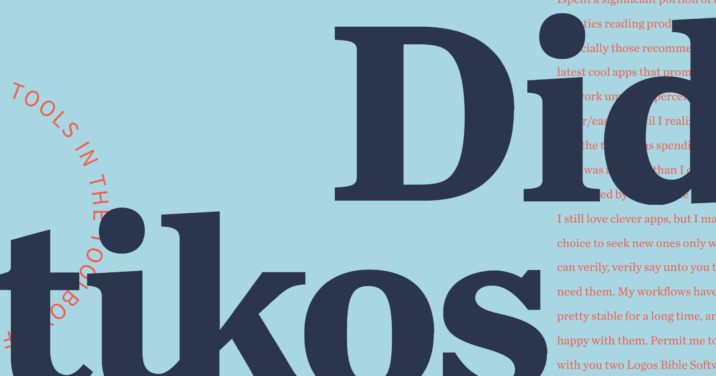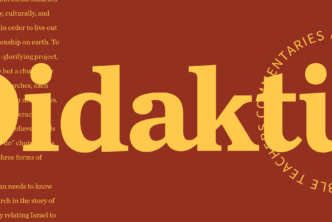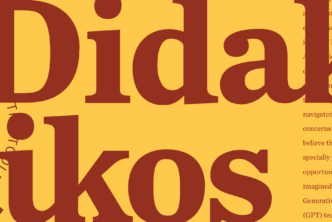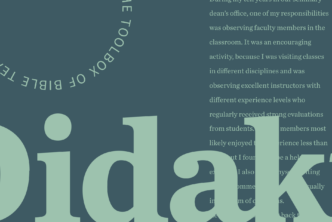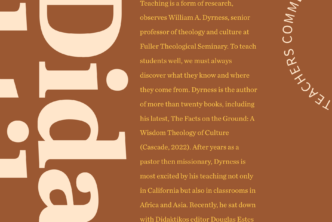I am a perfectionist.
While this may seem like a simple admission, it took me many years to self-diagnose and admit that I am, in fact, a perfectionist.
Nothing in my personality or past experiences led me to believe that I was a perfectionist. Growing up, I wasn’t always a rule follower. I infuriated most of my teachers, turning in late and hurriedly done assignments. I wasn’t at all detail-oriented; at least, not unless I came upon something I felt was really important. Then I tended to become myopic.
I’ve been a writer my whole life—high school newspaper, columnist for my college newspaper, freelance newswriter for the seminary I attended. But by the time of graduate school, I wrote my ThM thesis far more slowly than I planned. I chalked it up to life circumstances. And my PhD thesis was even slower going. Again I blamed life, not myself. By my third book, the delays and procrastinations that had haunted my academic life had me at a breaking point. I increasingly claimed “writer’s block” as a way to get around unpleasant conversations. Something was wrong, but I had no idea what it was.
One day in the middle of writing that third book, my wife casually remarked, “You know you are a perfectionist, right?” My immediate reaction was “No,” as I was sure that wasn’t possible. I’m not a “one right way to do things” person. But her words began to haunt me. I finally had to admit she was right.
Perfectionism is a “sin” that haunts many scholars and academics. In the lives of some, it shows up in rather obvious ways, but in my life and many others it is a thorn in the flesh that hides under various guises and is not easy to diagnose. Here’s what I did that helped begin my recovery.
First, I had to admit that I was a perfectionist. Really admit it, in the Alcoholics Anonymous way of admitting things: “Hi, my name is Douglas Estes, and I am a perfectionist.”
Second, I started researching what “writer’s block” really was and how it related to perfectionism.1 This gave me a clear sense of what I was up against, since there are various forms of perfectionism that manifest themselves in a number of different ways in scholars’ lives.
Third, I began to analyze my writing habits. Looking into my past, I saw a clear pattern in which I put off writing assignments until the very end. The last-minute thrill had always motivated me, but as assignments became increasingly longer and more complex, that approach failed more and more often. Not to mention the weight of feeling like I had to read everything ever written on the topic I was pursuing. It’s one thing to write an eight-hundred-word opinion piece for your college newspaper at the last minute, and a whole ’nother thing to write a 125,000-word PhD thesis at the last minute. Clearly something was wrong with my approach.
Fourth, I needed to discover why I procrastinated. Did I hate writing? If so, why had I spent my life volunteering for an activity I hated? It was at that point I realized I hated my writing. Everything I had ever written I felt was subpar. Rubbish. And even though it never bothered me during the day-to-day, I began to realize that in the dark of my soul there was a lingering uneasiness that hidden in my writing were clear signs that I was a fraud. That one day some biblical scholar would read my work and have an “Aha!” moment—and then reveal to the whole world that I really do not know as much as I think I do. Even though I have a strong, confident personality, deep, deep down inside I began to realize I was harboring an irrational fear—a fear that fed my perfectionism.2 Is everything I write perfect? No. But am I a fraud? No.
Fifth, I needed to prove to myself that these fears were lies created by my broken nature. So I began to give myself writing tests. For example, a publisher contracted me to write a short essay. Within a day, I sat down and did the research and wrote the essay.3 The next day I reviewed it—and it was a terrible, horrible, no-good mess. So I put it aside. A few months later, waiting until the deadline, I again researched the topic and wrote the essay. The next day, I read it over and, while it wasn’t great, I realized I just needed to turn it in. But I didn’t turn it in. Instead, I gave both versions of the essay to friends and we evaluated them. Guess what? The second, adrenaline-rushed version was no better than the artificially forced first version. And slightly more people preferred the first. I submitted the first, not the second, and that is the piece the publisher used. I now had credible evidence that there was no truth to the lie I had believed for so long.
Sixth, I started to make myself write assignments earlier and earlier in the process. I started to see deadlines not as deadlines, but as goal lines I wanted to cross as soon as possible. I started to use a word-count calendar, with quantitative goals. I started off with simple goals, such as five hundred words on a day designated for writing. That was a really hard goal at first. Over time, it became easier. I realized that if I were unburdened from perfectionism, writing was like a muscle—the more I wrote the stronger my writing became. Today, my goals regularly exceed one thousand words a day (higher for nonacademic publications). I don’t always make it, but I celebrate when I do. And I keep a list of my “high scores” as a reminder.
Have I solved my sin of perfectionism? No. It will be with me all my life. There are days when I still struggle greatly. As someone who is addicted to the fear of failure, which hides under the guise of perfectionism, I understand now it is a lifetime addiction. I am a perfectionist. But I also believe it’s in my weaknesses like these that God’s power is made perfect in me (2 Cor 12:9).
1 For discussions of “writer’s block” and perfectionism, see Tonette S. Rocco and Tim Hatcher, eds., The Handbook of Scholarly Writing and Publishing (San Francisco: Jossey-Bass, 2011), 38–39; Wayne C. Booth, Gregory G. Colomb, and Joseph M. Williams, The Craft of Research, 3rd ed., Chicago Guides to Writing, Editing, and Publishing (Chicago: University of Chicago Press, 2008), 199; W. Brad Johnson and Carol A. Mullen, Write to the Top! How to Become a Prolific Academic (New York: Palgrave Macmillan, 2007), 117–19; and Abby Day, How to Get Research Published in Journals, 2nd ed. (Aldershot, UK: Gower, 2007), 24.
2 For a similar take, see Johnson and Mullen, Write to the Top!, 70.
3 This was a form of “freewriting.” See Joli Jenson, Write No Matter What: Advice for Academics, Chicago Guides to Writing, Editing, and Publishing (Chicago: University of Chicago Press, 2017), 68; and Booth, Colomb, and Williams, Craft of Research, 199.
*Note: this article first appeared in Didaktikos: Journal of Theological Education, which is offered free of charge to theological faculty in the USA and Canada (click the image below).

